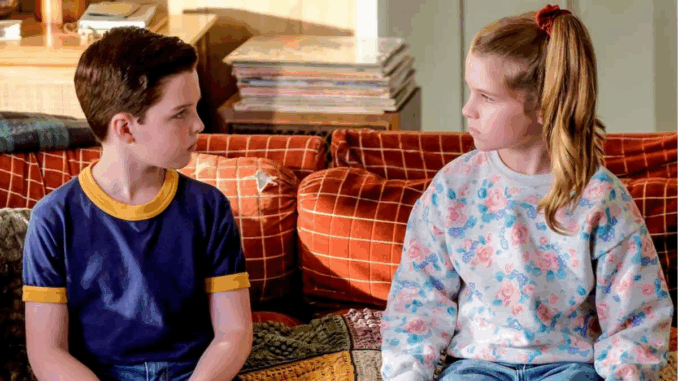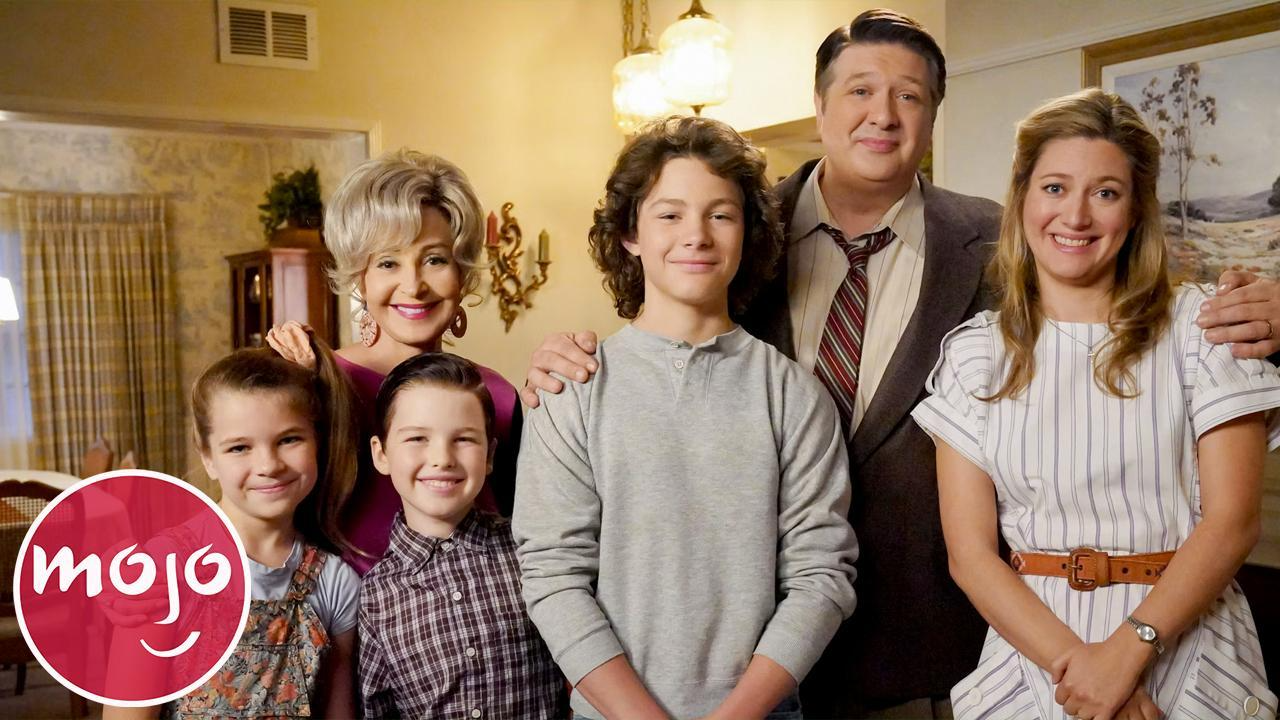
When CBS first announced a prequel to The Big Bang Theory, even diehard fans were skeptical. A sitcom about Sheldon Cooper as a child? Without the rest of the gang? In Texas? With no laugh track?
It sounded risky.
But fast forward to today, and Young Sheldon is a certified success story. So what was the real motivation behind creating it?
Spoiler alert:
It was a mix of creative opportunity, nostalgia, character exploration — and yes, a bit of genius business sense.
It All Started With One Simple Idea
“What Made Sheldon… Sheldon?”
That’s the question that sparked the entire project. Chuck Lorre (creator of The Big Bang Theory) and co-creator Steve Molaro realized that there was so much about Sheldon’s childhood that had only been hinted at.
-
His religious mom
-
His football-loving dad
-
His rebellious siblings
-
His obsession with science
-
His emotional coldness
They weren’t just quirky backstory details — they were rich narrative gold.

Sheldon Cooper Was Always More Than Just a Nerd
Jim Parsons’ portrayal of Sheldon was iconic — but he also made the character emotionally complex and tragic. Beneath the quirks, there was real trauma, a deep yearning for connection, and a family dynamic that shaped him profoundly.
Jim Parsons himself said:
“I always wondered what made Sheldon the way he was. I wanted to explore that.”
That curiosity is what led him to pitch the idea of Young Sheldon to the creators — and sign on as narrator and executive producer.
The Perfect Time in TV History for a Prequel
In 2017, when Young Sheldon launched, TV audiences were obsessed with origin stories. From superhero franchises to legacy shows like Better Call Saul, prequels were dominating.
CBS saw the opportunity to take their most popular character from a top-rated sitcom and expand his universe — but in a way that stood on its own.
Not Just a Copy-Paste Sitcom
Young Sheldon was bold. It ditched the laugh track, adopted a single-camera format, and leaned into drama as much as comedy. This was no clone of The Big Bang Theory — it was something entirely new.
Let’s Talk Business — The Ratings Machine
Yes, creativity mattered. But let’s be real — money talks.
The Big Bang Theory Was Ending
By the time Young Sheldon premiered in 2017, Big Bang was in its 11th season. The writing was on the wall — the show wouldn’t last forever.
CBS needed a way to keep the Big Bang brand alive. Young Sheldon gave them that — and then some. It quickly became the highest-rated new comedy on TV and a flagship show for the network.
A Story About Family, Not Just Physics
Unlike Big Bang, which focused on friendship and romance in adult life, Young Sheldon explored the struggles of growing up as a genius in a working-class Southern family.
It hit a sweet spot between:
-
Coming-of-age nostalgia
-
Family drama
-
Fish-out-of-water comedy
-
Faith vs. science tension
This made it relatable to far more people than just Big Bang fans.
Expanding the Sheldon Lore
Young Sheldon filled in major emotional gaps in Sheldon’s character arc:
-
His complicated relationship with his father, George Sr.
-
His bond with Meemaw
-
His early academic triumphs and social failures
-
The grief that shaped him after his father’s death
In doing so, it made adult Sheldon in The Big Bang Theory more understandable and sympathetic in hindsight.
Global Appeal and Streaming Success
With the rise of streaming platforms like Paramount+ and Max, Young Sheldon became one of the most bingeable shows on TV.
Why?
-
Episodes are short
-
The tone is warm and wholesome
-
It works for all age groups
-
It’s perfect for international audiences who may not have watched Big Bang
That made it a global cash cow — and a massive reason why CBS backed it fully.
A Showcase for Incredible Talent
Iain Armitage Proved the Show Could Stand Alone
The show could have fallen apart without the right young Sheldon. But Iain Armitage delivered a performance that was both intelligent and heartbreakingly sincere.
Annie Potts as Meemaw? Iconic.
And let’s not forget Annie Potts, who turned Meemaw into one of the most beloved TV grandmas of all time — cool, sassy, and surprisingly deep.
It Was Always Meant to Be a Complete Story
Unlike many spinoffs that drag on aimlessly, Young Sheldon had a clear arc:
-
Start with a 9-year-old genius
-
End with his departure for Caltech at age 14
-
Include the pivotal death of George Sr.
-
Connect it to Big Bang Theory canon
That kind of structure gave the show narrative purpose, something most sitcoms lack.
📝 Conclusion — Young Sheldon Was Made for All the Right Reasons
It wasn’t just about capitalizing on The Big Bang Theory’s success — though that didn’t hurt.
Young Sheldon was created because the people behind the original series saw a story worth telling. One filled with heart, grief, humor, family, and genius — and grounded in real emotion.
In the end, it became more than just a spinoff.
It became a legacy enhancer — giving Sheldon Cooper the full-circle humanity he never had before.
❓FAQs
1. Who came up with the idea for Young Sheldon?
Jim Parsons pitched the concept to Chuck Lorre and Steve Molaro, who developed it into a full series.
2. Was Young Sheldon always meant to be a prequel?
Yes. It was designed to explore Sheldon’s childhood and explain the origins of his adult personality in The Big Bang Theory.
3. Did Young Sheldon do well in the ratings?
Absolutely. It was one of the highest-rated comedies on network TV for multiple seasons.
4. Is Young Sheldon better than The Big Bang Theory?
That depends on taste — but many fans and critics agree it offers deeper emotional storytelling.
5. Will there be more spinoffs?
Yes! The spinoff Georgie & Mandy’s First Marriage has already launched, and more projects may be in development.